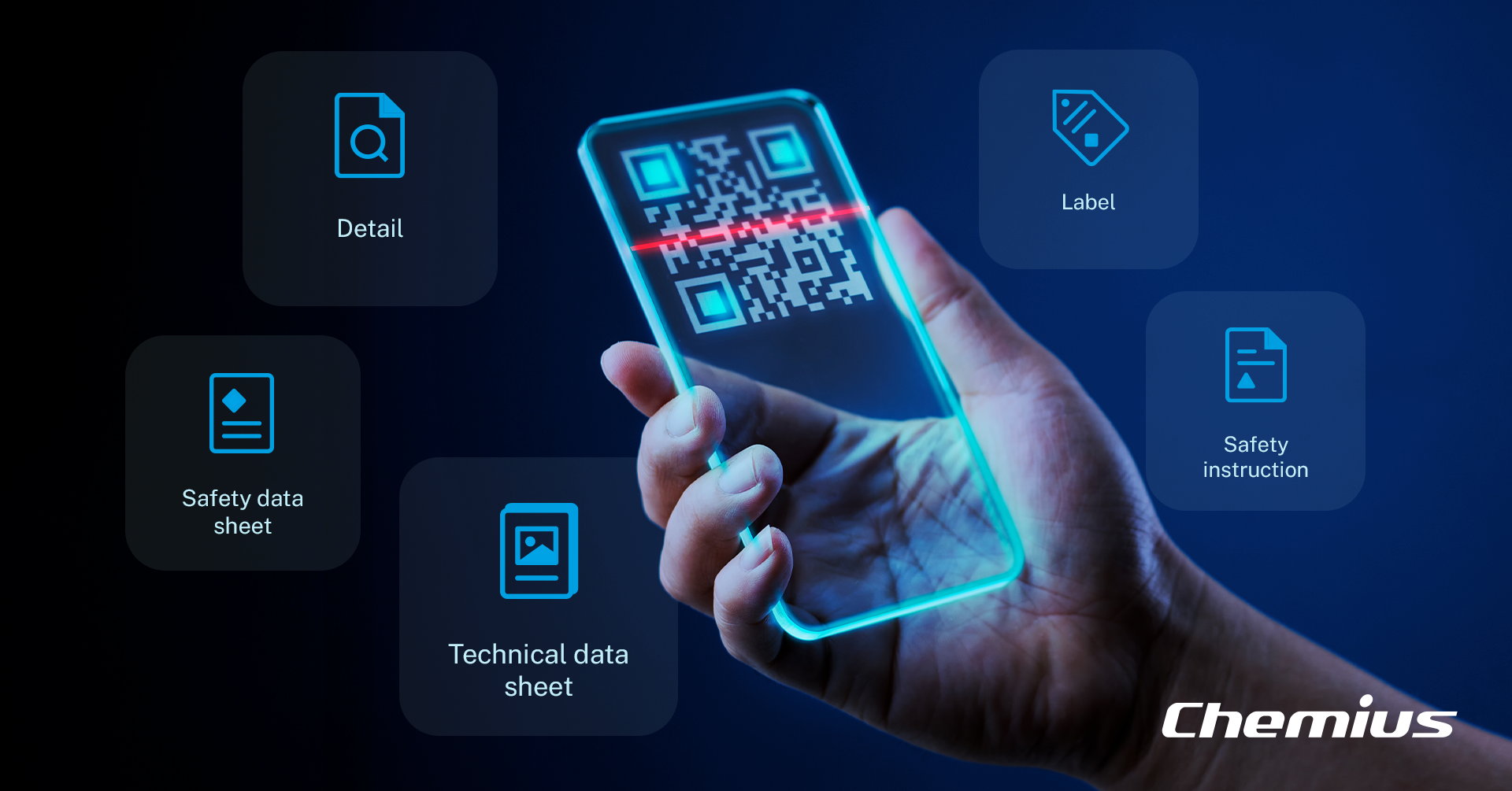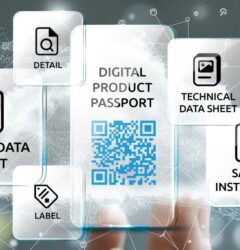15 Sep

Chemical companies today operate under an increasingly stringent regulatory landscape and escalating consumer demand for transparency and sustainability. In response, the concept of a Digital Product Passport dossier has emerged as an innovative solution, reshaping how companies handle chemical documentation, sustainability reporting, and product compliance.
But what exactly is a digital passport dossier, and why is it critical for chemical companies operating in sectors like paints, coatings, automotive, aerosols, raw materials, and chemical distribution?
What is a Digital Product Passport Dossier (DPPD)?
A Digital Passport Dossier is a comprehensive, digitally-accessible record of a chemical product’s entire lifecycle—from sourcing raw materials to end-of-life management. It integrates critical documentation, including Safety Data Sheets (SDS), Technical Data Sheets (TDS), and compliance details like Poison Center Notifications (PCN), Unique Formula Identifiers (UFI), GHS, OSHA, CLP, ECHA, and REACH compliance records.
In essence, it acts as a centralized digital record that transparently communicates the sustainability, compliance, and environmental impact of chemical products across the value chain.

Digital Product Passport (DPP) Deadlines for Companies
Key Deadlines and Timeline
• April 2025: The European Union mandates the introduction of Digital Product Passports (DPPs) for certain product categories to enhance transparency and sustainability. This is a significant milestone for companies preparing for compliance.
• July 2026: The European Commission will establish the DPP registry, which will house unique identifiers connected to products. This is a key infrastructure milestone for the DPP system.
• Mid-2027: For prioritized sectors such as textiles, iron, and steel, all products sold within the EU must possess a minimal and simplified DPP containing mandatory product and environmental information. Enforcement for these categories is expected to begin around this time, with an 18-month compliance window after the delegated acts are published (anticipated end of 2026/beginning of 2027).
• 2027–2030: The DPP requirements will be progressively extended to additional product groups, with full implementation across most sectors expected by 2030. (note that the deadlines and timelines were made with the AI research).
Key Benefits of Adopting Digital Passport Dossiers
Enhanced Sustainability and Transparency
Digital product passport dossiers enable chemical companies to clearly communicate their environmental and sustainability commitments. By transparently tracking and sharing product lifecycle information, companies can demonstrate tangible sustainability efforts, appealing to eco-conscious consumers and meeting increasingly rigorous industry standards.

Improved Regulatory Compliance
Chemical companies face growing compliance challenges, such as those outlined by ECHA, OSHA, CLP, and REACH. A digital passport dossier simplifies these complexities by providing a real-time, digitally-verified compliance record accessible to regulatory bodies, stakeholders, and customers. See how regulatory dashboard can help you inside of Chemius.
- Simplifies compliance submissions, including PCN and UFI notifications
- Automates updates to regulatory documentation (SDS and TDS)
- Reduces risk of non-compliance and associated fines
Increased Operational Efficiency
A centralised digital dossier reduces operational overhead by automating data management, eliminating duplication, and enhancing cross-departmental collaboration. And with application programming interfaces (APIs), you can automate as much as possible to achieve operational improvements.
Operational improvements include:
- Reduced manual paperwork
- Efficient cross-functional collaboration (R&D, regulatory, marketing, sales)
- Faster market entry due to streamlined compliance processes

Case Study: Transforming Sustainability for a Coatings Manufacturer
One of our customers, who are coatings manufacturer is adopting a digital product passport in Chemius to improve sustainability reporting and regulatory compliance across global markets. This move will drastically improved their sustainability scores, reduced regulatory compliance costs, and significantly enhanced their market reputation.
Impact:
- up to 70% reduction in compliance-related costs
- Accelerated sustainability certifications
- Enhanced customer trust and market competitiveness
- Better communication with endusers
Why Digital Passport Dossiers Are Essential for Modern Chemical Businesses
Digital passport dossiers bridge critical gaps in sustainability, compliance, and transparency—areas now considered mandatory in the modern chemical industry. They streamline complex documentation and regulatory processes, fostering proactive sustainability practices rather than reactive compliance management.
FAQs on Digital Passport Dossiers
1. What information is included in a digital passport dossier? It typically includes SDS, TDS, regulatory compliance documents (REACH, GHS, OSHA, CLP), lifecycle data, sustainability reports, and product composition details.
2. How does a digital passport dossier support sustainability? It provides transparent lifecycle visibility, supporting circular economy initiatives, resource efficiency, and clear sustainability communication to stakeholders.
3. Can digital passport dossiers integrate with existing management systems? Absolutely. Digital passport dossiers are designed for seamless integration with existing ERP, SDS authoring software, and PIM systems, enhancing data consistency and operational efficiency.

Actionable Steps for Implementing Digital Product Passport
- Assess Existing Documentation: Identify gaps and redundancies in your current product documentation system.
- Choose the Right Technology: Select a platform that integrates seamlessly with your existing management and compliance systems.
- Team Training and Alignment: Provide comprehensive training across departments (R&D, regulatory, sales) to maximize effective usage.
- Monitor, Report, Improve: Continuously assess dossier efficacy and use insights for continuous improvement.
Comparative Analysis: Traditional vs. Digital Product Passport Dossier

Original Insight
Digital passport dossiers represent more than compliance—they’re strategic tools enabling chemical companies to proactively manage sustainability, regulatory transparency, and product lifecycle management. Adopting digital passports sets a powerful standard for innovation in environmental stewardship and operational excellence.
Summing Up: The Strategic Advantage of Digital Passport Dossiers
Adopting a digital passport dossier empowers chemical companies with enhanced sustainability credentials, streamlined regulatory compliance, and superior operational efficiency. It positions businesses strategically to thrive in a landscape defined by sustainability and transparency demands.

Ready to adopt digital passport dossiers for your chemical product management?
Contact us at support@chemius.net explore tailored solutions designed for your unique regulatory and sustainability needs. If you want to book a demo with us let us know!


